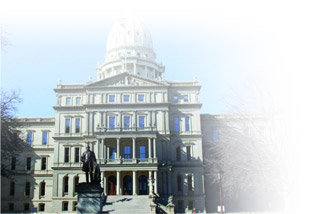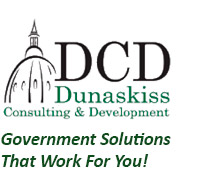
|
|||||||
|
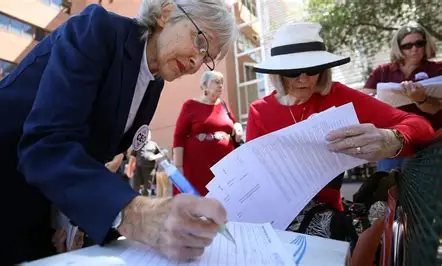 MI Canvassers Approve Summaries for Ranked Choice Voting, Invest in MI Kids Ballot Initiatives & One Fair Wage Referendum MI Canvassers Approve Summaries for Ranked Choice Voting, Invest in MI Kids Ballot Initiatives & One Fair Wage ReferendumIn a marathon Friday meeting, the Board of State Canvassers approved 100-word summaries for two constitutional amendments and one referendum aiming for inclusion on the 2026 ballot. Petition language from Rank MI Vote, the committee seeking to put a ranked choice voting constitutional amendment on the ballot, occupied over five hours of the meeting as attorneys for and against the proposed amendment sparred with board members and Bureau of Elections staff on the intricacies of ranked choice voting. Opponents of the measure argued ranked choice voting would represent such a drastic change to Michigan elections that further emphasis in the summary should have been placed on its differences from the current system. Proponents of the petition attempted to explain several aspects of how a move to RCV would affect constitutional protections for straight ticket voting or ensuring every vote is counted, but board members remained skeptical. "You did a good job explaining that, but I'm still confused," Board Vice Chair Mary Ellen Gurewitz said to Rank MI Vote attorney Steve Liedel at one point in a lengthy discussion about how straight ticket voting would work if the amendment were adopted. Although much discussion was had over the potential for voters to be confused or dissuaded from voting under a new system, attorneys and public commenters were reminded that before the board was only the summary language and the form itself, not the merits or demerits of any proposal. Eventually, the board settled on a summary reading "require ranked choice voting (RCV) for federal offices, governor/lieutenant governor, attorney general and secretary of state, allowing voters to numerically rank candidates by voter preference starting in 2029; count votes in rounds eliminating lowest ranked candidate and reallocating their votes to remaining ranked candidates until candidate with most final round votes is declared the winner; allow voters to rank at least four more candidates than positions to be nominated/elected unless insufficient number of candidates; authorize local jurisdictions to adopt use of RCV in local elections; move August primary to June or earlier in even year elections; require legislative funding and implementing legislation." Board members made the decision to strike other provisions of the ballot initiative language establishing constitutional rights to paper ballots and that those in line when polls close are still allowed to vote, reasoning that statute requires 100-word summaries to inform potential signers of any new rights the amendment would create. Since those rights are already statutorily protected under Michigan election law, they aren't classed as new. The form for the Rank MI Vote committee's petition was approved, allowing their signature gathering process to begin. One Fair Wage left frustrated by referendum summary Canvassers next considered a referendum on PA 1 of 2025, the Legislature's final answer to the minimum and tipped wage debate that occupied much of late 2024 after the Michigan Supreme Court's ruling allowing a 2018 ballot proposal raising the minimum wage and eliminating the tipped wage to take effect. The referendum is being brought forth by Voters to Stop Pay Cuts, a committee operated by One Fair Wage, the group which fought against the Legislature's modifications to the policy in hopes of seeing the ballot measure's language left intact. The petition language was almost pulled from the agenda over confusion about what iteration of the policy would take effect if voters were to overturn PA 1, until One Fair Wage representatives said the minimum wage policy would default to the MSC order. Attorneys and canvassers went back and forth over whether to classify the repeal of PA 1 as a decrease in the minimum wage. Ultimately, a summary was approved for a referendum petition to "repeal Public Act 1 of 2025, which amended the Improved Workforce Opportunity Wage Act. A repeal of PA 1 would decrease the minimum wage from $13.73 to $13.29 (2026) and from $15 to $14.16 (2027), with annual inflation-based increases thereafter; increase tipped worker wage to 48 percent of the full minimum wage in 2025, 60 percent in 2026, 70 percent in 2027, 80 percent in 2028, 90 percent in 2029 and 100 percent in 2030; and eliminate civil fines for employers failing to pay minimum hourly wage. This referendum petition would suspend PA 1 of 2025 and place it on the ballot for voter approval or rejection." Despite several One Fair Wage members signing up to give public comment on the referendum summary, no one was allowed by the board. Supporters of the petition called the summary inaccurate for leaving out the main reason the group wants to see PA 1 repealed – the law caps tipped wage at 50 percent of minimum wage by 2031, which One Fair Wage wants to see brought to parity with the non-tipped minimum wage. Business groups celebrated the summary as a realistic presentation of what repealing PA 1 would mean for Michiganders. "The Board of State Canvassers unanimously validated the irrefutable reality of this misguided One Fair Wage referendum – that it will actually reduce the minimum wage for all Michiganders. Public Act 1 of 2025 established a clear, responsible increase to the minimum wage and supported our tipped employees through genuine bipartisan compromise," Michigan Restaurant and Lodging Association President Justin Winslow said in a statement. "Allowing this out-of-state and clearly out of touch group to repeal this law won't help workers or businesses, but it will cut wages by over five percent. We call on Michigan voters to see through this deceptive campaign and decline to sign any petition that would actually cut worker pay." The Michigan chapter of the National Federation of Independent Businesses urged voters not to sign petitions being circulated by One Fair Wage. NFIB Michigan Director Amanda Fisher said having the referendum on the 2026 ballot would throw the restaurant industry back into the uncertainty it experienced in late 2024 and early 2025, when the Legislature was hammering out a compromise to alter the tipped wage policy set to take effect after the MSC ruling. "We are disheartened that out of state dark money groups continue to undermine the will of Michigan restaurant servers and owners in their effort to eliminate the tipped wage," Fisher said in a statement. "After the hard-fought bipartisan compromise represented in Public Act 1 of 2025, small business owners, especially those in the much-beleaguered restaurant industry, now face more uncertainty knowing that changes to minimum wage could occur at any time. We would urge voters to decline to sign this proposal." Despite objections from members of the group to the summary language in the meeting, One Fair Wage released a statement celebrating the approval of its petitions and announcing a public campaign launch for its signature gathering to take place in Detroit on July 14. "This isn't just about wages – it's about democracy," OFW Michigan Field Director Sarah Rose said in the statement. "The Michigan Supreme Court ruled in favor of workers. Over one million Michigan voters have supported this raise time and time (again). And yet politicians caved to lobbyists and stole that raise the day it was supposed to go into effect. Now we're taking this back to the people to make sure every Michigan worker is guaranteed a full minimum wage with tips on top." The canvassers also approved the forms for the referendum. A near deadlock and fierce argument on tax surcharge proposal for school funding The final item considered by the board was summary language and forms for the Invest in MI Kids ballot initiative, which seeks to place a five percent income tax surcharge on the highest earners in Michigan and use the proceeds to fund public schools. The initial question posed by attorneys was whether to refer to that five percent as a surcharge or an additional tax in the summary language. Deputy Director of Elections Adam Fracassi initially classed it as a surcharge in his proposed summary, since the proposed amendment refers to it as such. Liedel and fellow Dykema attorney Rowan Conybeare, representing Invest in MI Kids, agreed with Fracassi that the label of surcharge was accurate as describing "a tax in addition to another tax." Opponents of the proposal, however, said the summary should instead reflect the amendment tacitly creating a new graduated income tax bracket with a tax rate of 9.25 percent. After more discussion about whether to refer to the surcharge as a graduated income tax, attorneys and canvassers went back and forth about the specific purposes the revenue from the surcharge could be used to fund. The canvassers approved, after Chair Richard Houskamp decided not to vote against the language and deadlock the matter, a summary to add, beginning in 2027, "an additional 5 percent tax on annual taxable income, over $1 million for joint filers and over 500,000 for single filers." "This tax is in addition to existing state income taxes and is to be deposited into the state school aid fund and required to be used exclusively on local school district classrooms, career and technical education, reducing class sizes and recruiting and retaining teachers and subject funds to annual audits," the summary continued. Due to time constraints, the canvassers did not vote on the petition forms from Invest in MI Kids and said they would take up the matter at their July meeting. The Michigan Chamber of Commerce released a statement opposing the proposal, saying it would deal a body blow to small businessowners who pay business taxes through individual income tax and the summary did not do enough to underscore the reality of an additional tax. "The Michigan Chamber is deeply concerned that the revised ballot summary language approved today to amend the state Constitution and impose a graduated income tax fails to meet the standard of being true and impartial. Instead of clearly outlining the intent and real-world consequences of this proposed constitutional amendment, the language glosses over the significant graduated income tax hike and its impact on tens of thousands of Michigan small businesses," Michigan Chamber CEO Jim Holcomb said. "The Board had a responsibility to present the public with clear, unbiased language that reflects the scope and impact of the proposal. Unfortunately, this summary falls short and risks misleading voters about what's really at stake: rewriting Michigan's tax code to more than double the income tax rate for many job creators." Speaking before the board during discussion on how best to emphasize the permanent nature of an additional tax, Dan Ziegler of Dickinson Wright cited a statistic claiming his 2-year-old, as part of a predicted over 50 percent of toddlers in Michigan who will come to earn at or over $500,000 annually in 50 years. "This tax, which currently would only apply to a very small top percent, will within my child's lifetime apply to more than 50 percent of Michigan's residents," Ziegler said. Canvasser Heather Cummings shot back, to applause from Invest in MI Kids members in the audience. "If they're educated," she said.
DCD OUT & ABOUT
Senator Mat and Jake German recently attended Oakland County Executive Dave Coulter's fundraiser at Beau's Grillery in Bloomfield Hills with clients Dr. Nikil Hamady of Honor Community Health, Ahmad Taylor and Yvette Transou of the Pontiac Housing Commission, and Avinash Rachmale from Lakeshore Global Corporation. 
Senator Mat and Jamie Ayers, along with service dog, 'Wyleigh," recently met with several legislators and staff in Lansing to discuss Common Ground's Victim Assistance Program. Wyleigh stole the show! DCD IS A FULL-SERVICE, BI-PARTISAN, MULTI-CLIENT LOBBYING FIRM REMEMBER ALL OF DCD'S SERVICES: ARTICLES OF POLITICAL INTEREST:
Michigan Petition Summer: What to Know About Voting, Tax, Wage Proposals Before You Sign Hall: Bump stock, ghost gun bans 'dead on arrival' in Michigan House MI Senate OKs Plan Critics Argue 'Will Vastly Expand Secrecy in Public Bodies' Campaign Seeks to Ban Political Giving by Utilities, State Contractors Anti-Trans, DEI Provisions Have Michigan Lawmakers at Odds Over School Budgets Marijuana News, Updates, & Articles of Interest
We are here to help you with: municipal lobbying, license application writing and assistance, business plans, state required operations manuals and compliance, facility design, corporate structure, and design and branding. We are experts in both medical and recreational cannabis policy and have been in the space for over ten years. We welcome any opportunity to work with you in the future! ARTICLES OF CANNABIS INTEREST: Michigan Cannabis Regulator Urges Industry to Lobby Lawmakers for Change How A Tiny Michigan Tourist Town Became Weed City, USA American Heart Association Study Links Daily Marijuana Use to a Higher Risk of Heart Problems How Private Credit Built-And Will Continue to Sustain-the Marijuana Industry Doing Things Differently DCD is rebranding, and our bottom line is your bottom line. We are striving to create and foster strong relationships with clients and lawmakers, deliver results with strong ethics and class, but above all else, out-hustle and out-smart our competition every day to be the very best. We’re making chess moves while others are playing checkers. Everything we do is with you in mind, we’re doing things we’ve never done before and aggressively pursuing opportunities. The time is now. DCD has taken our firm to the next level and your involvement and investment paired with our knowledge and expertise is going to launch the great state of Michigan forward. |
|||||||
|
|||||||
Contact Us
Address
Phone
Copyright © Dunaskiss Consulting and Development Inc.

 Budget Talks on Eve of Summer Recess Get Serious
Budget Talks on Eve of Summer Recess Get Serious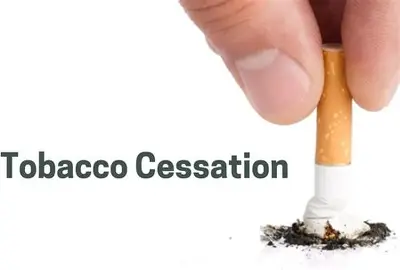 Tobacco Cessation, Retail Licensing Package Reintroduced in the Senate
Tobacco Cessation, Retail Licensing Package Reintroduced in the Senate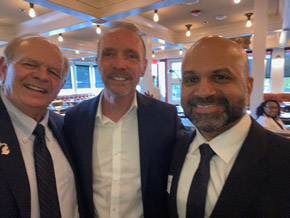

 THE DCD MARIJUANA TEAM: YOUR COMPETITIVE EDGE!
THE DCD MARIJUANA TEAM: YOUR COMPETITIVE EDGE!